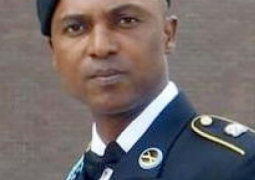Moses Benjamin Jallow,
Joof is on trial on charged with official corruption, obtaining goods by false pretence, stealing, conspiracy to commit felony, goods used, and four counts of abuse of office.
Continuing his testimony at the Banjul Magistrates’ Court, Moses Jallow told the court that, at the end of the investigation in
He identified the said documents in court as the one he handed over to the police investigator, and the documents were tendered and admitted in court as exhibits.
Jallow told the court that he received a gentleman in France, by the name Gerad Nuss, who came to the office to enquire about the whereabouts of the accused person, and that it was not known to Mr. Nuss that Mr. Joof was no longer in the office.
“I later told Mr. Nuss that Mr. Joof had returned to The Gambia, after completing his mission.
“I personally called Mr. Joof in
“Mr. Nuss contacted me again, and I told him that Mr. Joof’s services had been terminated. Mr. Nuss then informed me that he had paid 34,000 Euro to the accused person for the position of the Gambia Honorary Consul to
He also said that Mr. Nuss threatened that he would informed the Gambian authorities in
He said Mr. Nuss copied the letter he wrote to the Gambian authorities for the investigation purposes, and he (the witness) handed over the said letter to Burama Dibba, the investigator.
The said letter was tendered in court for identification purposes.
Jallow also said that Mr.Nuss prepared another statement in
However, the defence counsel Lamin S. Camara raised an objection on the grounds that this particular witness cannot testify on the document prepared by Mr. Nuss.
He added that only Mr. Nuss can testify on this particular document, not the witness, pointing out that this particular witness is not an investigator, but merely a diplomat. So he was disqualified in law to talk on the document he did not prepare.
Counsel, therefore, urged the court not to admit the document in evidence, citing the Evidence Act.
In response, the Director of Public Prosecutions said the document was for only identification purposes, and not as evidence.
DPP further argued that this particular witness was part of the investigators, so he was qualified under the Evidence Act.
However, the trial magistrate overruled the defence counsel’s objection, and admitted the document for identification purposes.
Magistrate Alagba subsequently adjourned the case till 10 March 2011.
Read Other Articles In Article (Archive)
Mini trial in Brusubi murder case
Dec 13, 2012, 8:54 AM



